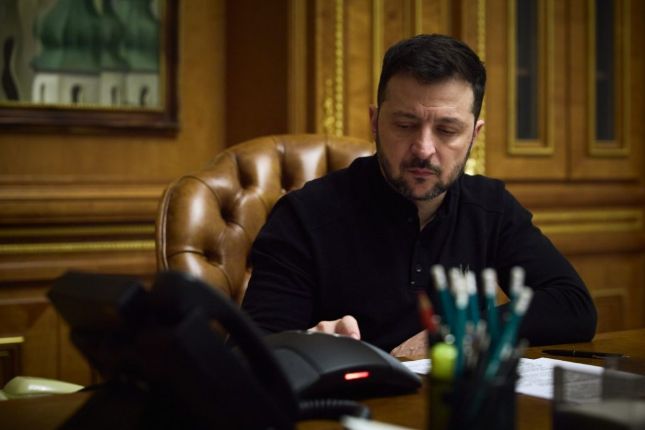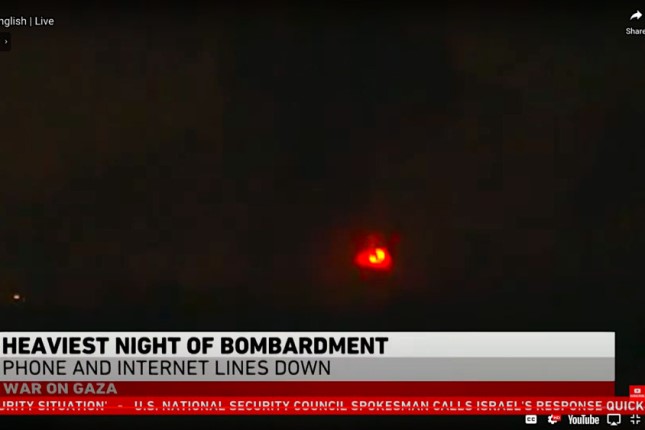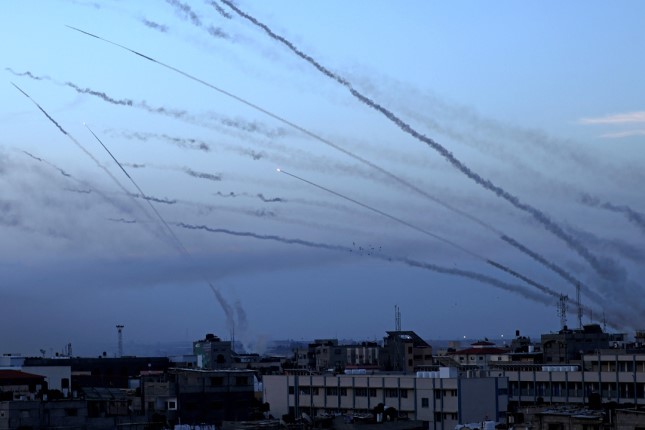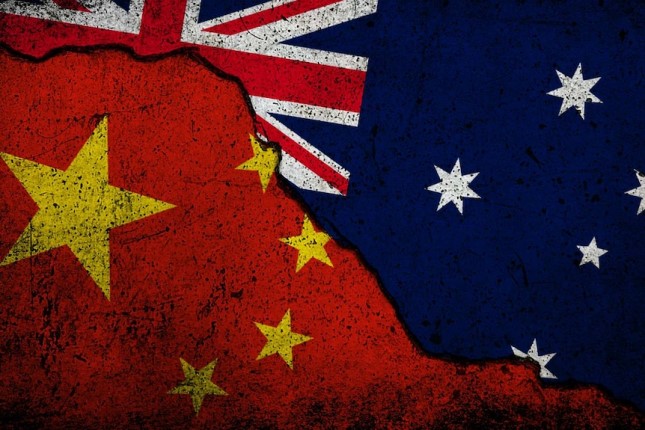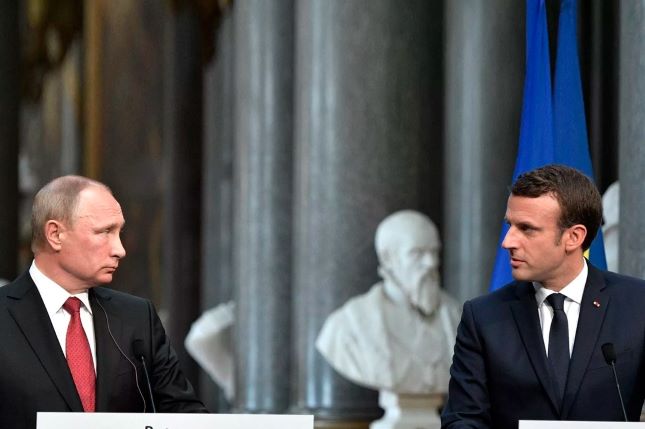But “the defendants’ argument is prima facie irrelevant,” says an expert in law of the sea.
Nord Stream AG last month brought a €400 million lawsuit against Lloyd’s of London and Arch Insurance in the High Court for refusing to pay an indemnity for the subsea blasts that ripped apart the Nord Stream 1 pipeline that carried natural gas from Russia to Germany along the floor of the Baltic Sea.
The written defense to the lawsuit, filed on behalf of Lloyd’s of London and Bermuda-based Arch Insurance, was made public last week by Swedish engineer Erik Andersson, who led the only private investigative expedition (in which I participated) to all four blast sites of the Nord Stream pipelines. It states that the “Defendants will rely on, inter alia, the fact that the Explosion Damage could only have (or, at least, was more likely than not to have) been inflicted by or under the order of a government.”
Said Mahmoudi, a legal scholar with expertise in law of the sea, international environmental law, use of force, international organizations and state immunity, believes the defendants’ position is “groundless.”
“The defendants’ argument is prima facie irrelevant if one cannot prove that the damage is caused by a named government that has been directly involved in a war in the area,” said Dr. Mahmoudi. “The burden of proof in this case is in my view on the defendant.”
Who perpetrated the Nord Stream sabotage, which stands as the largest act of industrial sabotage in history and the most pressing geo-political mystery of the century, is of great consequence for a future court decision. Initial reports in mainstream media blamed Russia without evidence.
The lead prosecutor on the Swedish investigation said the belief that Russia was responsible was “not logical,” while German investigators have “dismissed” the relevance of observed Russian vessels near the crime scene. Not a shred of the data, obtained during our independent expedition to the blast sites—including underwater drone images, videos and sonar images—has implicated Russia.
Reporting has either imputed guilt to the U.S. or Ukraine, as well as a theory suggesting the UK may be behind it. Seymour Hersh, the veteran investigative journalist, reported that United States Navy divers, in a CIA operation ordered by President Joe Biden, planted the bombs on the pipelines. Equally detailed reporting in German media claims to have identified the alleged financial backer and the apparent members of a six-person crew of “pro-Ukrainians” who allegedly transported the explosives operating from a 50-foot pleasure yacht called Andromeda.
It seems that, should the U.S. or the UK be the proven culprit, the insurers will prevail in court. What has not been previously reported, though, is whether the insurers would be forced to cover the damage from explosions if the perpetrator were Ukraine, for the defendants may have argued the small team of pro-Ukrainian operatives was rogue, not specifically tasked by a government with blowing up the pipelines.
But reporting in at least two articles in The Washington Post, which often operates as a public relations firm for the U.S. national security and intelligence services, alleges the “attackers were not rogue operatives,” but “those involved reported directly to Gen. Valery Zaluzhny, Ukraine’s highest-ranking military officer [who is now ambassador to the UK], who was put in charge so that the nation’s president, Volodymyr Zelensky, wouldn’t know about the operation.” (Emphasis added.)
So, the possible pro-Ukrainian saboteurs were neither rogue nor private, according to the Post. But because the president of a nation state, in this case, the president of Ukraine, was allegedly unaware of the attack, would the court interpret this as “the Explosion Damage could only have…been inflicted by or under the order of a government”? Or would the court rule that the sabotage was not a government-ordered act but merely greenlighted by a country’s highest-ranking military officer yet not its president?
The answer, “no,” has not been previously reported.
“If this is true and the court accepts that the explosions have been ordered and organized by a high-ranking Ukrainian military officer, even without the president’s knowledge, then the damage is attributable to Ukraine, and the state of Ukraine will be responsible for the damage,” said Dr. Mahmoudi. “Zelensky’s lack of knowledge about this operation has no effect on the issue of State responsibility.”
Another fascinating aspect of the lawsuit is the question of sanctions against the pipelines. “In the event that the Defendants are found to be liable to pay an indemnity and/or damages,” the defense brief states, “the Defendants reserve their position as to whether any such payment would be prohibited by any applicable economic sanctions that may be in force at the time any such payment is required to be made.”
Resulting questions arise: Should future sanctions be levied against Nord Stream 1, even if these sanctions are to be put into force after the lawsuit had already been filed, could the insurers be let off the hook?
“In such a case, the order of the court cannot for the time being be executed due to the new sanctions,” explained Dr. Mahmoudi, “but the court can still decide an indemnity that will be paid when the sanctions are lifted in [the] future.”
That the court can rule the defendants must honor the policy’s indemnity obligations once any future sanctions may be lifted has not been previously reported.
Still, the insurers may maneuver to protect themselves using subsequent sanctions as a pretense to skirt payment. In 2021, 16 insurance companies withdrew their support for Nord Stream 2, according to a leaked document from the Biden administration. Apparently, the insurers were pressured as the U.S. threatened to “examine entities involved in potentially sanctionable activity.” Both Lloyd’s of London and Arch Insurance are listed as companies that cowered before the threats.
The current legal and geo-political milieu of the U.S.-led, “rules-based” global order may be propitious for the defendants: The West sanctions Nord Stream 2, leaving it bereft of insurance coverage, and subsequently destroys it along with its twin pipeline, Nord Stream 1. Then the West may, retroactively, sanction Nord Stream 1 in advance of a court ruling that giant Western insurers have to pay up to the tune of around €400 million.
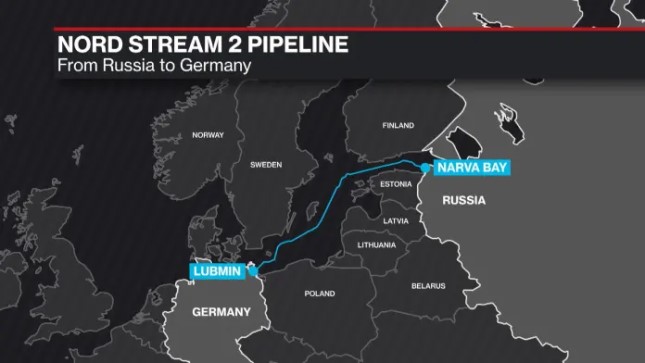
Source: flipboard.com
At the same time, the dynamics of the lawsuit are potentially uncomfortable for the West. It appears that two behemoth Western insurers will be legally compelled to pay substantial indemnities if they cannot demonstrate that the Nord Stream sabotage was ordered and executed by a government. The defendants’ brief references the Russian-Ukraine war, but makes no mention of a possible Russian self-sabotage. This could be seen as an admission that a Western nation, not Russia, is the perpetrator of the attack.
Because the insurance policy seems to cover “terrorism” but not “war,” compensation for the plaintiff would only be possible if the attack were deemed the former. However, even if the insurance covers only terrorism, a distinction has to be made between when a state is involved and when there is no state involvement.
“Even if the sabotage is an act of terrorism, the author of the act can be a state or a private entity,” said Dr. Mahmoudi. “If a private entity, the insurance company, is the only source for the compensation of damage; if a state is responsible for the terrorist act, theoretically, it is both the insurance company and that state that have a legal obligation to compensate the damage.”
Both the defendant and plaintiff in the case appear to argue that the obligation to prove the attack was government-ordered rests with the other party. As a general rule, the burden of proving an insurance policy applies and therefore covers damages usually lies upon the insured.
In order to argue the opposite—that it is the defendant who must prove the policy does not cover the damages—the plaintiff relies on the provision that, “in the event of any conflict of interpretation between the General Conditions and the specific insuring conditions…then the broadest possible interpretation to the benefit of the Insured should always prevail,” according to the plaintiff’s legal brief.
Dr. Mahmoudi confirms this.
“The normal order of arguing how the damage has happened is not applicable in such cases. It is not insured luggage that is damaged during air travel and the claimant must prove that the damage did not exist before and has been inflicted during the trip,” said Dr. Mahmoudi. “It is the insurer that has an obligation to show that one of the exceptions of the insurance agreement applies, not vice versa.”
The defendants contend that there is a distinction between “sovereign power” and “government,” arguing that, if the saboteurs were agents of a government, they should not be held liable. But it seems exceedingly difficult, if not impossible, for the insurers’ legal team to prove the attack was planned and carried out under the order of a mere sovereign power and not a government.
In fact, even convincing a judge that the saboteurs acted only on behalf of a sovereign power would have no bearing on a forthcoming court ruling, according to Dr. Mahmoud’s understanding of the application of international law to this case, which has not been previously reported.
“There is no difference between ‘sovereign power’ and ‘government’ in this context,” Dr. Mahmoudi contends. “They are the same, and, as such, different from private and commercial acts/agents.”
That there is no legal distinction between “sovereign power” and “government” in the lawsuit’s context has not been previously reported.
Nord Stream AG is not just a Russian company; it is an international consortium in which Russia’s Gazprom holds a 51% stake, alongside German, French and Dutch energy companies. In other words, to avoid a gargantuan indemnity obligation, the Western insurers will likely be made to prove a Western nation destroyed critical infrastructure valued at around €10 billion, 49% of which was owned by Western companies.
Germany is one of the three countries conducting an investigation into the sabotage, and two of its own energy firms had stakes in Nord Stream 1. (Sweden and Denmark are the other two, but both in February closed their probes without unmasking the perpetrator.)
In such a scenario—where the defendants are compelled to prove responsibility for the attack to prevail in court—what legal recourse do the insurers have? Can they sue Germany, Sweden and/or Denmark for not disclosing the results of their investigations into the sabotage? Similarly, can the plaintiff sue the same countries for withholding their probes’ findings?
The answer, “no,” has not been previously reported.
“None of these states have any legal obligation to disclose the results of their investigations,” said Dr. Mahmoudi. “The dispute between Nord Stream AG and the insurance company is of pure commercial nature even if the claimant is mainly state-owned.”
What about the investors? Could the investors, who potentially lost billions, sue any or all of the three investigating countries?
According to Dr. Mahmoudi, the answer to this “interesting legal question” is far from clear-cut. He cited case law for legal precedent but called any legal action a “remote possibility” for investors and described it as a “long and uncertain procedure.”
“A state whose citizens constitute majority shareholders of a company may sue before the International Court of Justice another state that is responsible for great financial loss of those citizens as a result of a national decision that breaches international law,” said Dr. Mahmoudi.
Some conditions must be met. A state must agree to grant its nationals the right to sue, and this protection can only be given to its own citizens, though there is no obligation on the part of the state to do so. “Thus, the citizens of Germany, Sweden, and Denmark cannot rely on this possibility,” said Dr. Mahmoudi.
“States are normally reluctant to get involved in such costly and resource-demanding disputes for the sake of their own nationals,” he added.
Nevertheless, the legal dispute between Nord Stream AG and the Western insurers reflects the enormous deceit surrounding the Nord Stream sabotage as a whole. For Denmark, Sweden and Germany, admitting that the perpetrator is either the U.S. or Ukraine, or both acting in concert, would be humiliating. And should any of those three investigating countries attribute the sabotage to Ukraine, it would amount to an admission that the country they support in the conflict with Russia committed an act of war against them.
If the United States were found to be the perpetrator, it would mean that the supposed guarantor of European security has executed an attack against its protectorates. Telling the truth would be mortifying.
Main photo: General Valerii Zaluzhnyi © dynamo.kiev.ua.
Source: AntiWar.






















